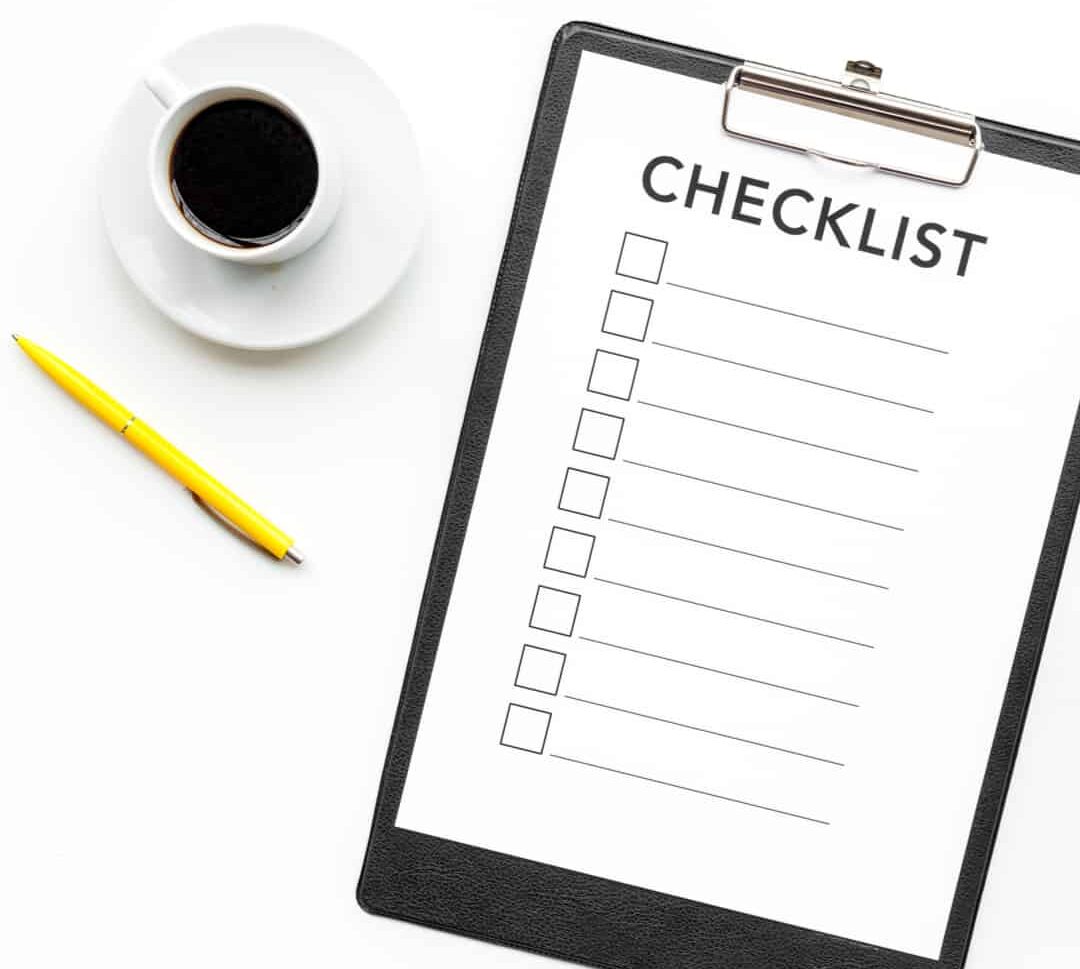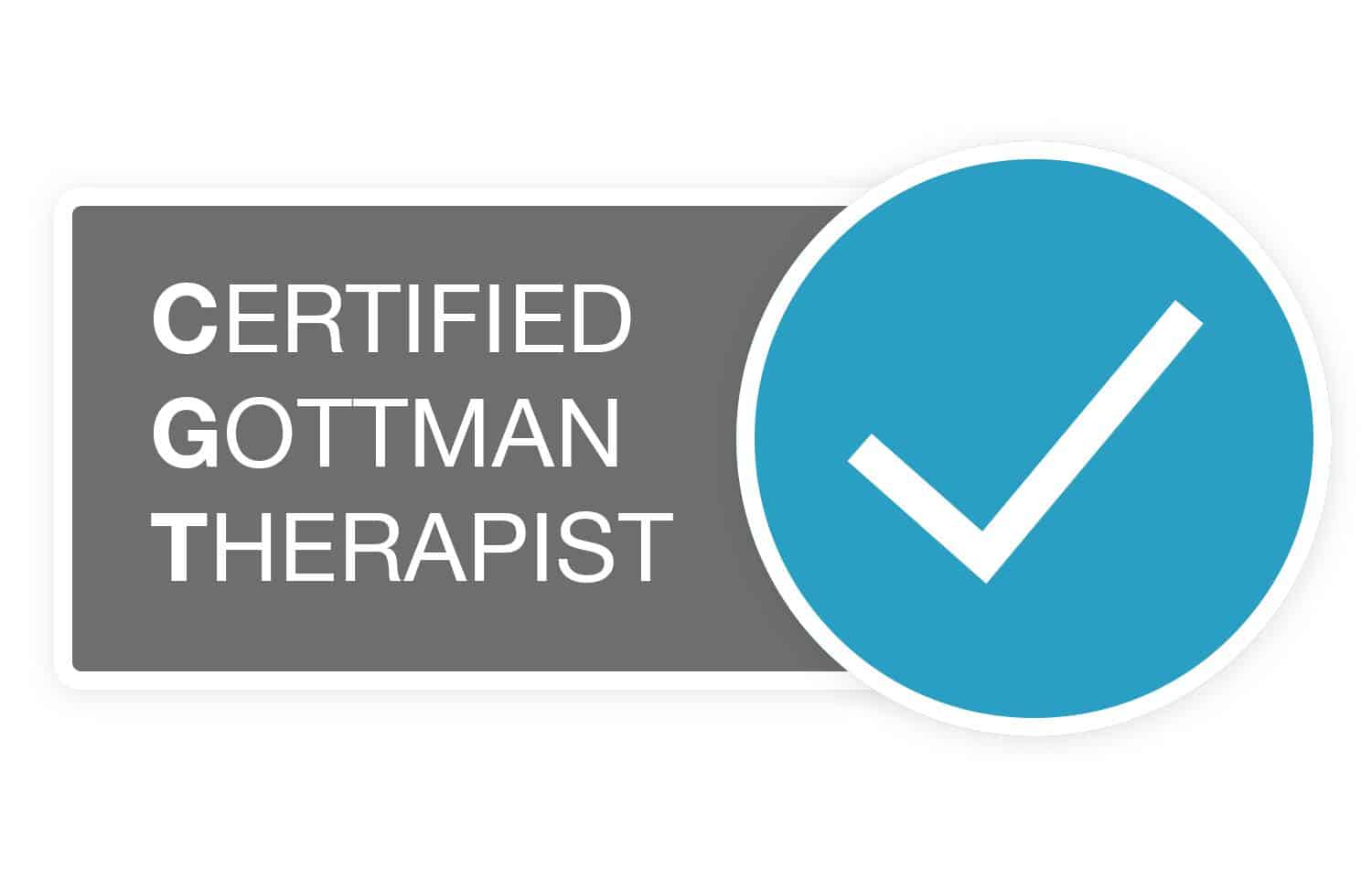Dr. John Gottman is a psychologist who has spent over 40 years researching couples and relationships. He tracked patterns in both happy and unhappy marriages. Using this research, he developed a unique approach to couples counseling.
While many researchers first develop a theory and then find proof to show they are correct, Gottman started by tracking 3,000 couples, watching their natural interactions, and developed a theory based on what he saw. This approach informs the whole Gottman Method: instead of trying to force yourself to fit in therapy, this model changes to fit you.
Dr. John Gottman has frequently been named one of the Top 10 Most Influential Therapists by the Psychotherapy Networker. He has published over 200 academic articles and more than 40 books about marriages, relationships, and parenting.
Together with his wife, Dr. Julie Schwartz Gottman, Dr. John Gottman founded The Gottman Institute, where he teaches The Art and Science of Love workshops and Levels One, Two, and Three of Gottman Method Couples Therapy Clinical Training.
Gottman Method Couples Therapy Session
Couples choose therapy because they’re having problems in their relationship that they can’t seem to resolve alone. These might be perpetual problems that you’re not able to overcome. You might feel like you’ve grown apart. You might be experiencing a more drastic marital conflict that seems unsurmountable. Couples counseling can help you work through these problems.
Every relationship will have problems, and therapy can help you with any of them. Whether you feel like you’re facing a major problem or if you’re tired of dealing with smaller problems periodically, couples therapy can give you the tools you need to get past these speed bumps.
You don’t have to be in the middle of a crisis to benefit from couples therapy. Many people use these sessions to check in on their marriage and make sure everything is on the right track. Happy couples might want to get tips on how to prevent future problems, or they might want to learn how to communicate effectively.
Couples therapy can help solve existing problems or prevent future problems in a variety of ways. If you feel like your relationship is on the rocks because your partner doesn’t understand you or isn’t affectionate, therapy can give you solutions to these issues.
You might think you and your partner see different things in your future, and it leads to a fight any time you try to address it. Having the discussion in front of a neutral therapist can help you work through these problems and get on the same path moving forward.
One partner might be open to therapy, while the other feels it is a waste of time and money. In that case, the Gottman Method might be an ideal therapy solution because it is flexible and empowers the couples to work through their own problems even outside of the therapist’s office.
What is Gottman Method Couples Therapy?
In Gottman Method Couples Therapy, you have an end goal of increasing empathy within your relationship. Gottman’s research found that increased communication and intimacy helped couples revive the respect and affection they had for each other at the beginning of their relationship.
Revitalizing those early feelings help couples push past the stagnancy often felt in long-term marriages. The Gottman Method uses approaches like the Sound Relationship House Theory, the Gottman Relationship Checkup, and the Gottman Repair Checklist to address relationship problems and work through them.
The Gottman Method is ideal for working through many common relationship issues, such as infidelity, broken trust, communication problems, and more. The process starts with a thorough inspection of the current relationship before looking forward to where the couple wants to be.
What Should I Expect if I Decide to Enter Into Couples Counseling Using the Gottman Method?
In a Gottman Method couples therapy session, you will learn about the Sound Relationship House Theory so you can customize it for your relationship. This will give your therapist an idea of how your relationship works, and you’ll be able to understand how each level of the house plays an important role in your complete relationship.
You will also have an individual session with the therapist so they can understand both partners independently. Each person will be able to tell the therapist about himself and how they view the relationship. This is important in learning how you come together as a couple and can identify any problem areas that weren’t apparent in the joint session.
Since flexibility is at the heart of the Gottman Method, you and your partner will be able to decide how long you want to attend therapy and how long each session will last. This level of control ensures that the couples feel invested in therapy, and as a result, they will get more out of it.
How Effective is the Gottman Method in Relationship Counseling?
The Gottman Method is an incredibly effective form of relationship counseling if both partners are invested. Since the entire approach is flexible and can be customized for each relationship, it has a high level of success.
Once both partners are on board with Gottman Method Therapy, the focus will be on repairing the relationship foundation, building from the Sound Relationship House Theory, and developing effective communication so they can get past perpetual problems.
What you learn in your therapy sessions can be applied to other situations in your life. In other words, the work is not only done in the therapist’s office. When you use this approach in your everyday life, you can use your therapy sessions like a Gottman relationship checkup.
Why Should We Choose a Certified Gottman Therapist?
Since the Gottman method is different from traditional therapy approaches, you’ll want to find a certified Gottman therapist. They have gone through involved three-level training and are specialized in working with couples.
There are over 100,000 clinicians worldwide who are certified in the Gottman Method, so you’ll certainly be able to find one in your area. They might come from different backgrounds, such as counseling, education, life coaching, or working in small group therapies.
Regardless of their background, each professional goes through three levels of training before being certified:
- Level One: Bridging the Couple Chasm
- Level Two: Assessment, Intervention, and Co-Morbidities
- Level Three: Practicum Training
This in-depth training guarantees that your therapist has learned from Dr. Gottman’s research and has already applied their knowledge in the field. It’s also ideal to use a certified Gottman therapist so you can experience continuity in your sessions if you have to find someone new.
Though you might have to catch a new therapist up with the progress you’ve already made, using certified Gottman therapists ensures that you’ll get the same quality of input from your therapy sessions regardless of whom you see.
Gottman Repair Attempts
In the Gottman repair method, “repair” doesn’t mean patching up what you think is wrong in your relationship and moving on; it means that you’re finding the root cause and rebuilding from where you started to go wrong.
The Gottman Method’s approach to repair depends on how well you and your partner make and receive repair attempts. If you want to resolve a relationship conflict and build a healthy relationship, the Gottman Method is for you.
A repair attempt, as described by Gottman, is “any statement or action that prevents negativity from escalating out of control.” This means there isn’t one answer to the repair solution; it can be customized to suit you and your partner.
What Is the Philosophy Behind the Gottman Method?
Traditional therapy doesn’t work for some couples because it’s rooted in tried and true methods, but those approaches aren’t one size fits all. Gottman repair attempts are flexible ways to address negative interactions in a way that makes sense for your relationship.
The Gottman Method works on the philosophy that relationships need strength in three key areas: friendship, conflict management, and shared meaning. This means every relationship should have a foundation of friendship to build upon.
From there, Gottman uses many approaches to work on the other two pillars of relationships. For conflict management, he has developed communication methods like the Gottman Repair Checklist that helps couples start conversations with neutral phrases that help them share their thoughts.
Shared meaning can be developed when a couple feels empathy for each other, which develops into intimacy. Gottman’s Love Maps and Sound Relationship House Theory help effectively build this pillar.
Does the Gottman Method work?
The Gottman Method is one of the most research-based approaches to couples therapy, and it has a track record of effective repair attempts. Because you’re given a list of possible phrases to encourage communication and de-escalate conflict, you’re able to practice the Gottman Method even after you leave the therapist’s office.
Happy couples have reported that the Gottman Method helped them pinpoint their perpetual problem and understand how to work past it. Certified Gottman therapists help them analyze their conflicts so they can stop having the same fights.
When couples share their innermost thoughts and vulnerabilities, they develop a deeper intimacy than anything physical can inspire. By developing empathy for their relationship, couples rebuild their marriage stronger.
How Do You Improve Your Communication Skills?
Though it may sound counterintuitive, listening is an important aspect of communicating. This is especially true in relationships when a partner will often suffer from a lack of intimacy because they feel like they aren’t being heard or understood.
Body language also affects your communication. If you have your arms folded, you’ll look like you’re not hearing your partner, even if you’re actively listening and responding. In terms of response, it’s better to think for a moment before replying off the cuff.
Instead of being silent when your partner finishes speaking, convey that you heard them but need a minute to compose your response. Don’t leave them hanging. Acknowledging that you heard them and are processing a response can actually be very meaningful to your partner because they know you’re taking them and the situation seriously.
To improve your spoken communication skills, you’ll use the Gottman Repair Checklist. This list has many different talking points broken down into categories so you can find what you need. If you feel stalled and unable to express yourself, you can find phrases on the repair checklist under headings such as:
- I Feel: “I feel blamed. Can you rephrase that?”
- Sorry: “How can I make things better?”
- Get to Yes: “Let’s find our common ground.”
- I Need to Calm Down: “I need to finish what I was saying.”
- Stop Action!: “We are getting off track.”
- I Appreciate: “One thing I admire about you is…”

Healthy couples can use these phrases as a jumping-off point for a conflict discussion. When you listen to your partner’s attempt at conflict resolution, you can use the repair checklist to respond or simply follow their lead into a natural discussion.
Gottman Trust Revival Method
People can feel betrayed in a relationship due to infidelity, hidden financial problems, secrets, and more. Betrayal can be felt even if the offending partner didn’t intend any harm; the intention does not make the feeling any less real.
A partner who feels betrayed might lash out, suffer from plummeting self-esteem, lash out in anger, or retreat into themselves. While the betrayal has already made the relationship rocky, the unstable feelings from the other partner make the whole marriage more at risk.
There are processes to rebuild trust, whether you plan to stay with your partner or not. Trust is crucial for a stable relationship, so if you’re staying together, you need to have a strong foundation so you can start rebuilding your marriage.
If you decide to break up, you can still benefit from working to revive your trust. Feeling betrayed by one person can exacerbate any insecurities you have beneath the surface, so suddenly, you find you’re unable to trust anyone, regardless of your relationship with them.
When suffering from broken trust, people need emotional support. However, talking to friends and family members about what you’ve gone through can quickly turn into a blame game. Once you and those around you start blaming your partner for what happened, it’s nearly impossible to come back from that to save the relationship.
Starting Gottman couples counseling after a betrayal is an excellent way to get the emotional support you need without worrying about pitting your friends and family against your partner. A certified Gottman therapist is a neutral party who will balance both sides of the story without judgment and help you both make it through.
How Do You Revive Trust in a Relationship?
The Gottman Method estimates that roughly 73% of couples suffering from betrayal stay together after they rebuild trust. The Gottman Trust Revival Method uses three phases to help couples regain the trust they’ve lost, whether it was caused by an affair, lies, or other problems over time.

Can You Rebuild Trust After Cheating?
Rebuilding trust after cheating is an involved process, but it is possible. While there is no convenient answer as to how the Gottman Trust Revival Method can be used as a magical bandaid, it is an excellent way to work through an affair with your partner.
Working through each phase of trust revival will help you both understand why the infidelity happened and how you can move past it. Both partners have to be invested in the process and have faith that the relationship can survive.
You have to trust that your partner will change their behavior and not cheat again. You also have to decide on your own if you are willing to forgive your partner and work to rebuild not only your trust but the relationship. If you feel too hurt, it might not be possible to do in this relationship.
In order to effectively approach rebuilding trust, the person who cheated needs to accept blame for what they’ve done. The hurt partner needs to be willing to forgive their partner and patiently cooperate while working through the problems. Both partners will need to change to a certain degree in order to regain trust.
People think that cheating is just about lust, but there’s usually another issue at the core. In strong relationships, a person feels like they’re getting their needs met, even if they are going through a physical dry period.
A relationship rooted in communication, empathy, and vulnerability will likely not lead to infidelity. And if it does, then you already have a strong foundation to fall back on as you work to rebuild trust.
If your partner cheated, you’d feel hurt, but it will also hurt to realize that your relationship wasn’t as strong as you initially thought. Some couples find that they have to scale back to the beginning of their partnership to rediscover why they fell in love.
When you strip your relationship down to the foundation, you’re able to work harder to build it back up. Some people think it’s best to just repair what is wrong, but there’s nothing wrong with starting from scratch with your partner.
When relationships progress naturally, a lot of things seem to fall into place so that you’re not knowingly making choices. You’re moving in together because it’s the next logical step; you’re getting married because it’s expected of you.
This doesn’t make any of your choices wrong, but couples counseling will give you a chance to go back over these decisions with a trained therapist. As you talk about your relationship, the therapist will help you put things into perspective, so you appreciate what you have. Too often, couples realize the value of their marriage after their divorce. When you’re in Gottman couples therapy, you won’t get to that point.
How do you know if you have trust issues?
There are different ways to determine if you have trust issues. That might include that you’re not willing to open up to others, even if you really want a deep relationship. You’re protecting yourself because you don’t think anyone else will value you or keep your secrets confidential.
You might be too worried to get close to someone because you think they’ll hurt you, even if you have no proof that they will. Having previous experiences with betrayal and infidelity can increase the likelihood that you’ll have trust issues in later relationships.
Attachment Theory
Figuring out your attachment theory can also help you determine if you have trust issues. Your attachment style is typically defined from your childhood, where your first relationship experience was with your parents. It’s possible to change your attachment style, especially if you’re in couples counseling.
If you have a secure attachment style, you feel confident in your relationship, and don’t worry that your partner is doing something behind your back. People in secure relationships feel comfortable telling each other everything without worrying about how the information will be received. They also have no problem asking for help or selflessly helping their partner.
If you have a dismissive-avoidant attachment style, you don’t like to get close to others emotionally. You’re very independent and feel uncomfortable asking others for help or support. Because you’re unable to get emotionally close to anyone else, you also have trouble trusting them.
Anxious-preoccupied attachment style means you’re constantly looking for a deep emotional attachment, even if a relationship isn’t the best fit for you. You’re trying to make things work so you can be in love, and as a result, you give your trust too easily to people who may not deserve it.
Fearful-avoidant attachment style is also called disorganized, which gives you an idea of how it feels. If you’re fearful-avoidant, you might feel like you want a relationship, but you’re not doing the work to make it worth it. You might change yourself and make a lot of effort to have a relationship with someone who is wrong for you and push away someone who is good for you.
Some of these styles might sound familiar. If you can’t figure yourself out from the descriptions, you can take an online quiz or a Gottman love maps questionnaire to determine your attachment style. Once you know, you can work on rebuilding your trust so that it suits your current relationship.
Gottman Method Divorce Predictors
When Gottman was initially researching his methods, he found that he was able to predict a couple’s path to divorce with a 90% accuracy. With the divorce rate for 2020 reaching 39%, it’s worth investing in Gottman Method couples therapy to see how your marriage might fare in the current climate.
What Are the Four Relationship Dynamic Predictors of Divorce?
Gottman studied many marriages and traced back all of the reasons for divorce to four predictors: criticism, contempt, defensiveness, and stonewalling. Gottman calls these the Four Horsemen, similar to the four horsemen of the apocalypse from the Bible.
The four horsemen of the apocalypse were conquest, war, famine, and death; these are much harsher than Gottman’s Four Horsemen, but many people who experience divorce report it feels like a death, so Gottman’s comparison might not be too far off.
The Four Horsemen of Gottman
Both John and Julie Gottman helped develop the Four Horsemen theory over years of observing married couples in therapy. Nothing escaped their notice: facial expressions, body language, tone of voice, and how they talked about the relationship.
In their studies, the Gottmans found that 69% of conflicts can’t be resolved in a marriage. That doesn’t mean those fights will lead to divorce; at least, not if the couples can handle the conflict in a rational way. Learning how to deal with conflict will help couples stay together, even if they keep facing disagreements.
Dealing with conflict means couples need to know what the Four Horsemen are so they can avoid them.
Criticism
Criticism isn’t a general complaint about an outside influence; it is specific to your partner and is very personal. It will likely hurt their feelings when you criticize them. When you criticize your partner, it will most likely lead to an argument because they feel attacked and will retaliate.


Defensiveness
Defensiveness often happens in response to criticism as a natural reaction. When someone attacks you, you feel the need to defend yourself, even if their criticism is valid. It’s more about the approach used than what is being said.
You might also be defensive even if you’re not criticized or attacked. Being defensive makes it seem like you’re dismissing your partner’s concerns instead of hearing them out.
Contempt
Contempt means you don’t feel anything tender towards your partner. They might need physical affection, and instead of being glad that they’re turning to you, you feel angry that they are so needy.


Stonewalling
Stonewalling means one person in the marriage isn’t communicating. It’s the equivalent of giving someone the silent treatment. If this starts to happen, both partners should agree to take a break and come back when they feel ready to actually talk to each other.
When to Call It Quits in a Marriage?
In addition to the Four Horsemen, there are other rough patches identified in a marriage that could potentially lead to divorce. One is how you use your body language in communication. It’s easy to fly off the handle at your partner if they’re staring at you with their arms crossed or hands on their hips.
Gottman noticed that people who started communicating with open body language were more likely to have effective discussions and would typically solve their problems in that initial conversation. Having a negative communication style, on the other hand, only exacerbated the conflict.
Another communication problem that can lead to marriage trouble is flooding. Gottman defines this as when your partner’s negativity is so quick and overwhelming that it washes over you like a wave. This alone might not lead to a divorce, but if it frequently happens over time, it can create a negative environment that requires a lot of help in therapy.
Think about your marriage—what do you focus on, the good times or the bad? People more likely to divorce typically think of the bad memories first when asked about their marriage. Healthy couples remember the good times, especially the time when the relationship started, and they fell in love.
Besides focusing on bad memories, having past attempts at repairing your marriage is another likely indicator of divorce. Most relationships follow a pattern, whether it’s a pattern in how you fight and make up or a pattern in your resentments.
Most couples have the same fight for their entire marriage. That doesn’t mean they always fight about the exact same thing, but their fights follow the same pattern, which leads to the same resolution—or lack thereof.
No one likes doing the same thing over and over again, but if it’s a fight that never works out in your favor, then it’s even more detrimental to your well-being. And that negatively influences your relationship in return.
What is Different About Gottman Method Couples Therapy?
Gottman couples therapy is different because it’s flexible and approachable so that couples can work on their issues at home and talk with a therapist when they need help or a neutral third party’s input.
The Gottman Method is also different because certified therapists don’t make you stay together during your struggles. Gottman himself was married twice before marrying his wife Julie, who he’s been with since 1987. He knows that not all marriages are destined for success, and it’s okay to acknowledge that.
In fact, Gottman advises people to get out of a bad relationship sooner rather than later. Some people are not the best match, and it does more harm than good to try to stay together when things aren’t working out, especially if children are involved.
Gottman Love Maps
Gottman cites friendship as the core of any solid marriage. Even if you didn’t start off being friends with your partner, friendship could develop even after a romantic relationship is in place. It’s a lot to ask a marriage to stay intact just because of sex or because you never fight with your partner.
If you have a solid foundation of friendship, then you can go through dry spells and fight and still not be on the brink of divorce. Friendship is the most enduring relationship, so if you feel that running as an undercurrent of your marriage, then you’re in a good place.
What is a Gottman Love Map?
A Gottman Love Map is the way you get to know your partner in ways you don’t know anyone else. Everyone recommends you get to know your partner before you marry, but it’s possible to know someone well without knowing everything about them.
Your partner should be someone who knows all of your secrets. You should feel confident telling them anything without worrying how they’ll judge you. A Love Map is a way of letting a person find their way through the deepest parts of your thoughts, emotions, fears, and dreams.
A Love Map is a living document. It’s not something you create and finish because people are always changing, and you must be ready to adapt along with your partner. As your lives change, your map will change.
Questions to get you thinking about your Love Map include:
- What is one of your favorite ways to be soothed?
- What is your approach to hard financial times?
- What was your favorite vacation?
- What is your secret dream for your life?
Gottman’s Sound Relationship House Theory
Gottman’s research led to his creation of the Sound Relationship House Theory, which is a way to make your marriage last. The house is built on trust and commitment, and the seven levels of the house include:
- building love maps
- sharing fondness and admiration
- turning towards instead of away
- keeping a positive perspective
- managing conflict
- making your life dreams come true
- creating shared meaning
Building a love map is the foundation of a healthy relationship. You have to get to know your partner to truly be committed to them, and a love map is a way to get to know your partner intimately. You and your partner should know each other better than anyone else.
Sharing fondness and admiration is the floor above your foundation. This means your partner vocally expresses what they like about you. This frequently happens in the first stage of your relationship when you’re falling in love. These can be big reasons or small reasons; the important part is that it is said aloud, so you feel appreciated.
Turning towards each other instead of away applies to all aspects of your relationship. You should be able to come to your partner when you need help, support, or cheering up. If you’re getting that from other people, you need to talk to your partner, so they know what you need from them.
Keeping a positive perspective can help your overall life, not just your relationship. But being positive in your relationship can keep those feelings of love burning bright. This means you don’t think badly about your partner if they forget to run an errand for you. You acknowledge that they didn’t do it to hurt you and put a positive spin on it, so you don’t forget that they love you.
Managing conflict is crucial because it can’t be completely avoided. When it comes up, you need to know how to handle it so it won’t explode into a huge argument. Part of managing conflict includes considering how your partner reacts to things and tailoring your communication accordingly. Talk everything out and remain calm, taking breaks if necessary.
Making your life dreams come true applies to both you and your partner. You should both help each other reach your goals, supporting each other and working together. You can each have your own individual goals, but you need to also focus on your relationship goals to ensure you keep growing together.
Creating shared meaning will happen naturally in relationships because you’re doing so much together as a couple. You’ll have your own rituals and inside jokes that bond you together over time. You might also need to make time to talk uninterrupted or consciously kiss hello and goodbye every day to strengthen these bonds.
All seven floors of your Sound Relationship House can’t stand on their own; they need the pillars of trust and commitment to keep them sturdy. It might sound like a lot to keep track of, but trust and commitment are essential and pave the way for the other floors to stand strong.





